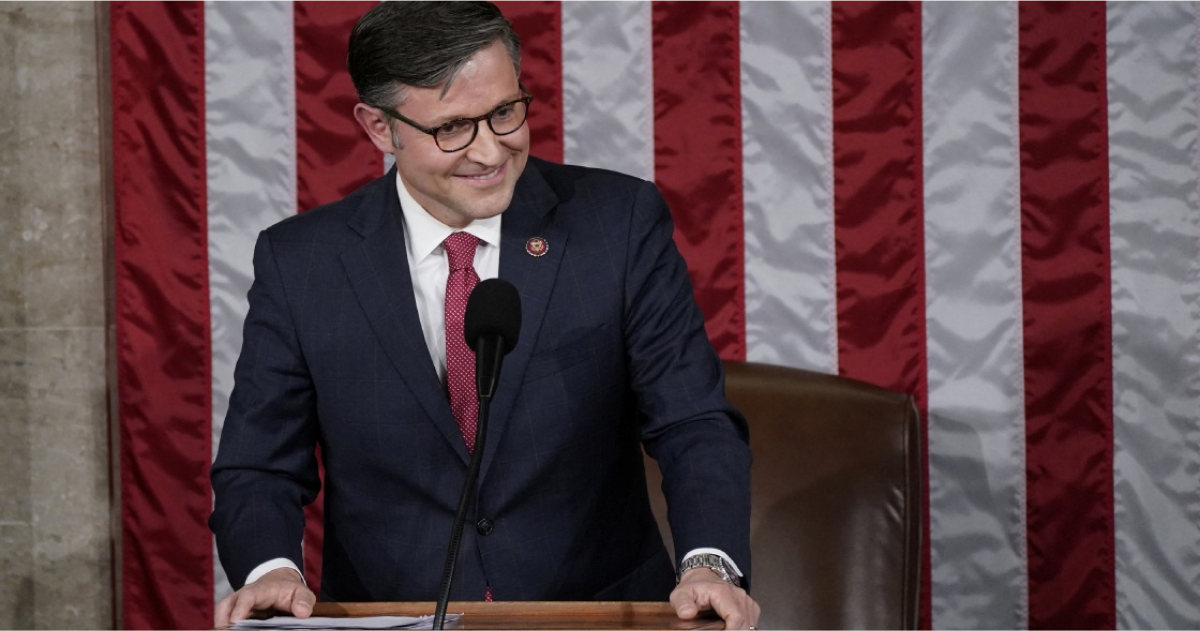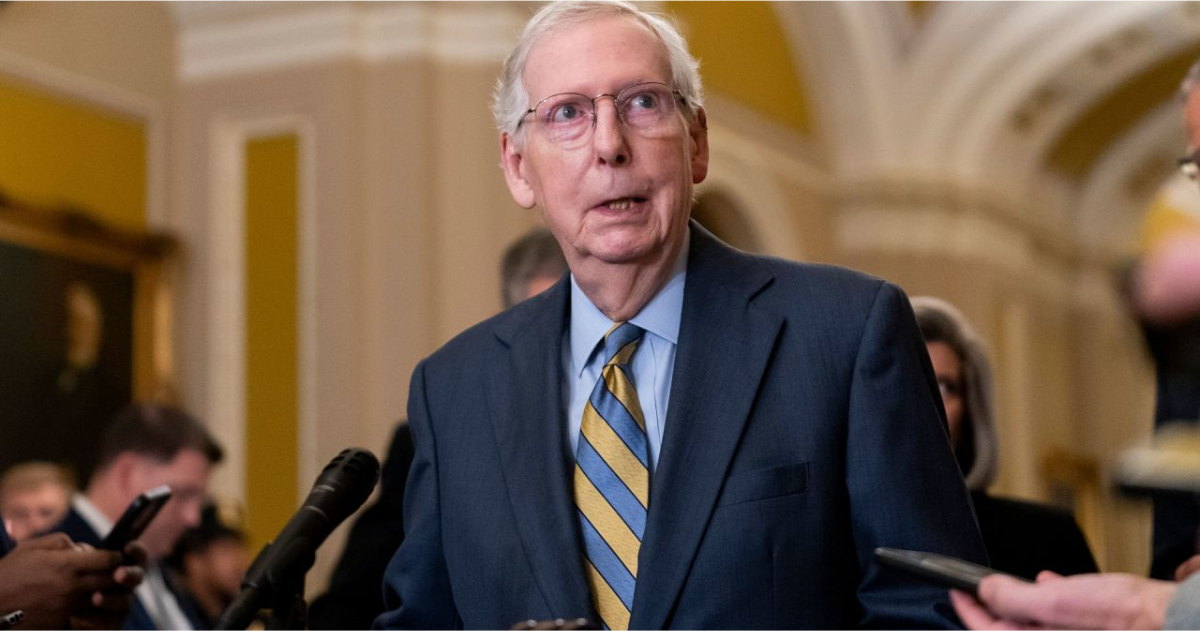US funding for Ukraine and Israel: here's what's going on and what the new House Speaker has to do with it

What preceded it?
On October 19, President Joe Biden addressed Americans and called for support for Ukraine and Israel, including financial aid. Then the US president said:
We have our divisions at home. We have to get past them. We can’t let petty, partisan, angry politics (referring to several failed attempts to elect a new speaker of the House of Representatives, where the Republican Party has a majority — ed.) get in the way of our responsibilities as a great nation. We cannot and will not let terrorists like Hamas and tyrants like Putin win.
The next day, the White House appealed to Congress for additional funding for Ukraine and Israel. Insider reported then that the US administration was asking for $61.4 billion for Ukraine and $14.3 billion for Israel, as well as $9.15 billion in humanitarian aid for the two countries and the Gaza Strip. In addition, funding for US allies in the Indo-Pacific region, including Taiwan, and border security was discussed.
On the same day, the US House of Representatives failed to elect a speaker at the third attempt.
The previous speaker, Kevin McCarthy, was removed from office. He was accused of a "secret deal" with Joe Biden. According to the "deal", Biden agreed to sign a temporary bill that did not include aid to Ukraine to avoid a shutdown, in exchange for McCarthy agreeing to hold a separate vote on aid later. The resignation was initiated by Republican Matt Gaetz.
Svidomi covered the situation in more detail in our previous article.
The new House Speaker and his policy on Ukraine
On October 25, the US House of Representatives elected a new House Speaker. It was a representative of the Republican Party, Mike Johnson.

Johnson was elected after the previous contender, Tom Emmer, withdrew his candidacy a few hours after the party members voted for him. The reason was the stiff opposition of the Republican Party's right wing and Donald Trump's opposition. Tom Emmer is regarded by his fellow party members as a supporter of Ukraine. The Republicans for Ukraine project gave Emmer the highest score for his support of Ukraine.
At the same time, Mike Johnson is an ally of Trump and defended him during his impeachment hearings. The Republicans for Ukraine group rates Johnson's support as low. In May 2022, he voted against a $40 billion aid package for Ukraine.
Separate funding for Ukraine and Israel. The White House opposes
On October 26, Mike Johnson said in an interview with Fox News that funding for support for Ukraine and Israel should be provided separately. Before the interview, Johnson conveyed this position to Biden.
The Speaker added that "Republicans in the House agree that it is necessary to separate the issues". Commenting on the issue of funding for Ukraine, he added that "we (Republicans — ed.) want to know what the ultimate goal is in Ukraine. The White House has not provided that".

In late October, Johnson introduced a bill providing $14.3 billion in aid to Israel. It did not include funding for Ukraine.
However, according to Bloomberg, the package does not include humanitarian aid for civilians in Israel and Gaza. The new speaker's plan calls for providing aid by cutting the inflation reduction law signed by Biden. The decision is a precedent in US practice, as Congress does not usually cut other programmes to cover emergency spending.
In response, the White House said that Biden would veto the package proposed by the Republicans while cutting funding for the Internal Revenue Service (IRS) and not funding other national security priorities, including funding for Ukraine.
The White House Office of Management and Budget believes that aid to Israel and Ukraine should be allocated as part of a single package and that the proposal itself is "bad for Israel, for the Middle East region, and U.S. national security.
Senate opposes separate funding
Senate Republican Leader Mitch McConnell is in favour of linking military aid to Ukraine and Israel. He sees both wars as part of a global threat.
In general, US senators from both parties have expressed doubts about the House Republicans' plan to provide $14.3 billion in aid to Israel by cutting funding for the IRS, while not providing aid to Ukraine.

The top Senate Democrat said the Republican bill would be dead on arrival in the upper chamber, even if it passed the House.
McConnell added that the US should support four areas: Ukraine, Israel, Taiwan and the border.
Russia will succeed in Ukraine if the US withdraws support
At the same time, on October 31, the Senate Appropriations Committee held a hearing on additional funding for Ukraine and Israel.
One of the senators, Democrat Dick Durbin, asked Defence Secretary Lloyd Austin whether Volodymyr Zelenskyy was exaggerating when he said that "without the financial support of the United States and NATO, Ukraine will lose this war". Austin replied that Russia would be able to succeed in Ukraine if the United States withdrew its support.
Secretary of State Antony Blinken said that if the US stopped financial support for Ukraine, it would
Do terrible damage to our values and also to our core interests because we are united in our desire to respond to aggressors".
Letter to Biden from Republicans
Republican Congressman Mike Garcia and seven of his fellow Republicans sent a letter to Biden calling for the separation of aid to Israel from Ukraine.
In his letter, Garcia said that Israel and the United States have been allies for almost 75 years, so
Тhere is a level of trust and cooperation between the two countries that does not exist between the United States and Ukraine.
"The situation in Israel is dynamic and threatens to plunge the entire region into chaos, while the fronts in Ukraine have remained largely stagnant for months," the congressman said.
He believes that both Israel and Ukraine must win, but "American taxpayers have become weary of funding a never-ending stalemate in Ukraine with no vision for victory". Therefore, to "reassure Americans", the congressmen put forward 12 conditions that must be met "before a single dollar is sent to Ukraine".

Among those:
- Biden and Zelenskyy provide the US Congress with a strategy for a Ukrainian victory. How Ukraine wins and how long it will take. Estimates may not be accurate, but congressmen should understand the ultimate goal.
- What is the estimated cost of executing the winning strategy?
- They are demanding that President Biden and Pentagon Chief Lloyd Austin clearly inform the American people about the status of the war in Ukraine, including reporting on Ukraine's progress to date, outlining the reasons for the current "stalemate" and providing an update on the "spring counteroffensive".
- Biden and Austin should explain why future US investment is necessary.
- Biden and Austin should provide Congress with a list of weapons that have not been sent to Ukraine but have changed the trajectory of the war so far.
- Biden and Austin should explain what would happen if US investments in Ukraine ceased.
- The US Treasury and Commerce Departments should report to Congress on the level of implementation and compliance with the sanctions already approved against Russia.
- The US and all NATO members should adopt a policy of full sanctions against Russia to include all oil, grain and rare earth minerals.
- President Biden and Secretary of State Austin should provide an explanation of why the requested resources are the right ones to win.
- Congressmen will want to hear whether the U.S. and Ukraine agree on the mission's goals for Crimea and whether the U.S. believes Ukraine's desire to return Crimea is realistic.
- Biden and Zelenskyy should continue to provide Congress with a full accounting — to the extent possible - of the weapons systems that have been sent and used to date.
- Biden should provide commitments and evidence that his administration is not jeopardising the schedule and cost of critical domestic weapons programmes or the commitments made by the US to support programmes for Taiwan and Israel.
The authors believe that until the Biden Administration has met these conditions, funding for Ukraine should not be considered in Congress, and therefore the funding programme for Israel should be separated from the programme for Ukraine.


